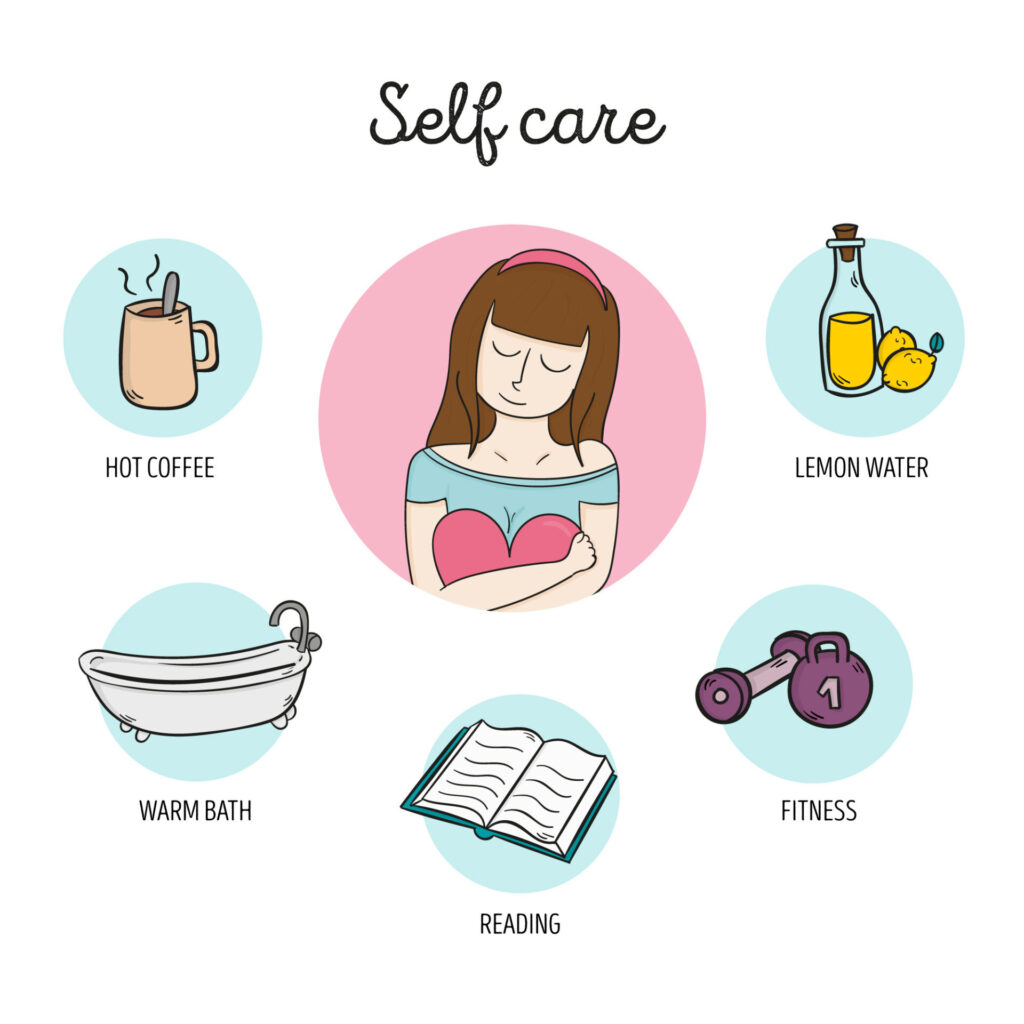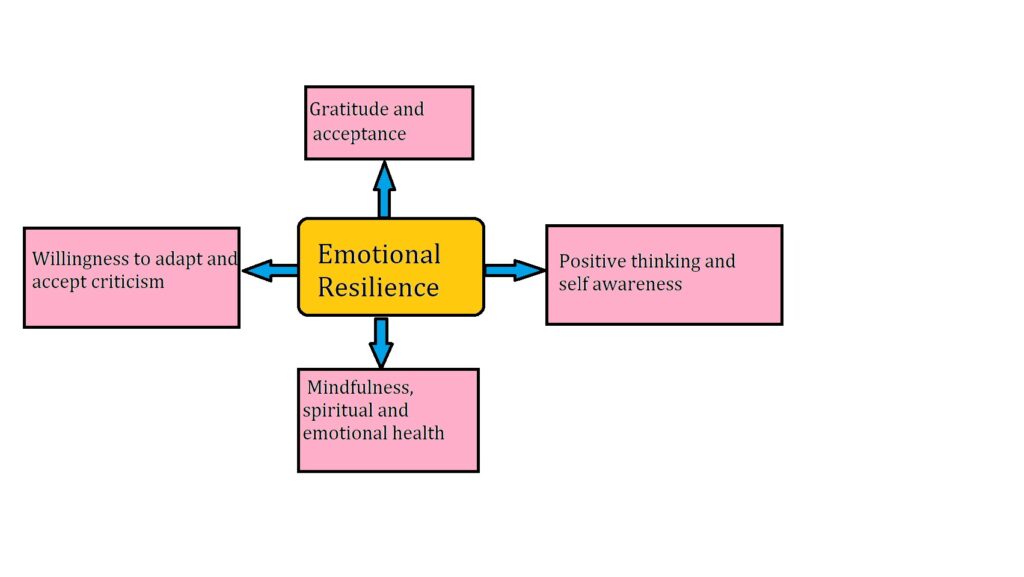It’s a time of crisis amidst the COVID pandemic. And you can’t deny the fact that Crisis situations are daunting. It’s also true that situations like these are not in our control. People are dying and others who are surviving are just surviving, that is beyond living their life to the fullest. So in these helpless situations, how to become emotionally resilient becomes an important question.
And this article will help you to answer this question.
What is Emotional Resilience?
Our reaction towards a stressful, unpredictable change or uncertain situation like this coronavirus or loss of your loved one and coping with the resulting feelings of despair, fear, or disappointment, in an effective manner, is called emotional resilience. It is the courage to overcome fear.
Resilient people are able to view such situations in a more realistic way and then set reasonable goals to deal with the problem. Resilience is not about being happy or stress-free always but to continue facing the storms of life without giving up.
For example, Shivani is a working, independent, and responsible woman. She has the capability to handle both office and homework and completes her work on time. Instead of complaining about what she could not achieve, she is happy about what she has achieved this far. Her tiniest achievements matter more to her than her causes of stress. She is open to changes and flexible while adapting to new situations. She knows how to be fine, even when nothing is fine. Yes, Shivani is emotionally resilient.
How to Become Emotionally Resilient?
There lies a tremendous power in being resilient, persistent, and determined. And all of it can be learned, through the steps discussed below:
1. Develop Self-care habits
Unless and until you take care of yourself, you can’t take care of your loved ones in those situations where your resilience is tested. So be very sure to develop self-care habits like eating healthy, sleeping healthy, and thinking healthy.

2. Practice spirituality
To develop resilience, we have to be aware of our inner potential first. Rather than looking for help outside, we need to find the divine light within us that is our inner world. This is nothing but spirituality which will guide you what is right or wrong when it comes to knowing yourself. When you are emotionally resilient, you are more connected to your spiritual side.
Related: 1. 11 signs that confirms you are highly spiritual person.
3. Confront your problems rather than escaping them
To err is human.
Emotional resilience doesn’t mean that stress or loss won’t affect us. It will affect us, but we always have a choice. Escaping our problems seems to be an easier solution, but it’s not the right and effective one. We always need to accept feedback or criticism if we want to move forward.

4. Have any meaning to your life
Don’t just live your life for the sake of living it, rather have a purpose. Your purpose in life allows you to live your life to the fullest.
Related: Meaning of life, happiness and greatness.
5. Believe in yourself and your abilities
Believing in yourself improves your confidence. It is such a powerful tool that it can change the course of any negative situation into a positive one by uplifting your inner spirit.
Related: The power of beliefs.
Always remember you are braver than you believe, stronger than you seem, and smarter than you think.
Christopher Robin
6. Optimistic approach
Everyone is so obsessed with the phrase “Staying positive”. Can staying positive avoid any doomed or gloomy situations? No!
When anyone is crying over the death of a loved one, no matter how many times you say “SAB THEEK HO JAYEGA” (everything will work out), these words of yours will be useless to them.
Similar reads: Stop denying your negative emotions!
Rather than focusing only on “staying positive” while ignoring other emotions, one must try to look on the bright side while still acknowledging the difficulties of the situation. That’s what an optimistic approach is all about. That is the only source that can give you the courage to face those gloomy situations, no matter how impossible they may seem. This approach allows us to see the silver linings under every cloud.
7. Practice acceptance
We are living in this age of pandemics. But we can’t change its situation by not accepting it. By this time, after such a huge loss of people, we have accepted that we have to live like this only. Unless we accept it, we will always be mentally and emotionally disturbed by it. Acceptance makes a way for you to deal with the punches of life. (Here’s how?)
8. Be a voracious learner
Life is the best teacher. It teaches us a variety of lessons that we have not studied in our textbooks. We learn these lessons through our experiences. And we can learn these lessons more effectively only when we are voracious learners. That means we should always be curious to learn about these regular life lessons.
9. Be flexible
Having flexibility is a necessary part of becoming more resilient. By learning how to have more adaptability and flexibility, one is better equipped to respond after facing a life crisis or a predicament.
While most people may be crushed by unexpected or unforeseen changes, highly resilient individuals adapt and prosper.
Emotional resilience exercises
Emotional resilience exercises include
- Focusing on your breath. Try taking deep breaths every time you feel anxious or stressed, and notice its results.
- Keeping a gratitude journal or any diary to pour out your feelings.
- Practicing random acts of kindness.
- Spending some quality time with your loved ones.
- Having some “me time” reserved for you, in a day.
- Take a break and relax.
Tips to become an emotionally resilient person:
An emotionally resilient person has or should possess these characteristics:
- Be aware of your thoughts and emotions.
- Accept your imperfections courageously.
- Seek emotional support from your close ones.
- Practice positive self-talk.
- Focus on your own personal development.
- Learn lessons from your experiences, whether those experiences are good or bad.

Emotional resilience test
Here is a simple self-assessment for you that will make it clear how resilient are you. You will need just a simple YES or NO for these statements.
- Do I have the power to face or overcome difficulties?
- What’s more important for me? Long everlasting relationships or shallow relationships?
- Can I handle criticism or negative feedback?
- How do I deal with stress? Stressfully or intellectually?
- Am I aware of my strengths and weaknesses?
- What’s my attitude towards my life? Accepting or complaining?
- Where do I focus more? In problems or solutions?
How to become Emotionally resilient in the workplace?
Emotional resilience for employees at the workplace is mandatory to improve their productivity. Here are some tips that might help professionals to achieve resilience in their workplace.
- Never ignore your health for the sake of work. Remember, good health should always be your first priority.
- Try to build a healthy relationship by cooperating with your employees, and ignoring the unimportant and temporary conflicts at your workplace.
- Prioritize your tasks.
- Avoid multitasking. Take 1 task at your hand and complete it with your full concentration first before taking other tasks at hand.
- Appreciate your own as well as your team members’ achievements.
- Stick to your commitments.
- Don’t expect too much from others. Moreover, your success should not come at the expense of others.
- Be a good listener.
- Avoid judging others.
- Schedule and plan ahead. Practice time management.
- Be patients. You don’t need to react impulsively even in little situations.
- Communicate respectfully with others. Because what you say reflects the characteristics of your behavior. This is particularly the case when others’ opinions differ from yours.
CONCLUSION
Resilience is very different than being numb. Resilience means you experience, you feel, you fail, you hurt. You fall. But, you keep going.”
Yasmin Mogahed
Resilience is adapting and managing your problems effectively that is how to cope with the ups and downs of life. We all have this characteristic hidden inside us in more or less quantity. All we have to do is just build it up more, so that we can handle ourselves in times of need, and do not get shattered. Because everyone knows, as you grow, so are your problems, so are your challenges.
Books recommended:
- The Resilience Factor: 7 Keys to Finding Your Inner Strength and Overcoming Life’s Hurdles – Karen Reivich and Andrew Shatte
- Resilience: Navigating Life, Loss, and the Road to Success – Lisa Lisson
- The Micro-Resilience: Minor Shifts for Major Boosts in Focus, Drive, and Energy – Bonnie St. John and Allen P. Haines
- Resilience: Why Things Bounce Back – Andrew Zolli and Anne Marie Healey
- The Yes Brain: How to Cultivate Courage, Curiosity, and Resilience in Your Child – Daniel J. Siegel and Tina Payne Bryson
Reference:
- Positivepsychology.com- What is emotional resilence?
- https://youtu.be/NWH8N-BvhAw
- Secrets of resilient people.
Hope this post helps!
Discover more from Talking Concept
Subscribe to get the latest posts sent to your email.





2 Comments
I would really appreciate how nicely you have explained the meaning of emotional resilience, how a person can acheive that and how a person can self realize the worth of it. Amazing writing and content Sweta..keep it up..
Thank you Shivani.